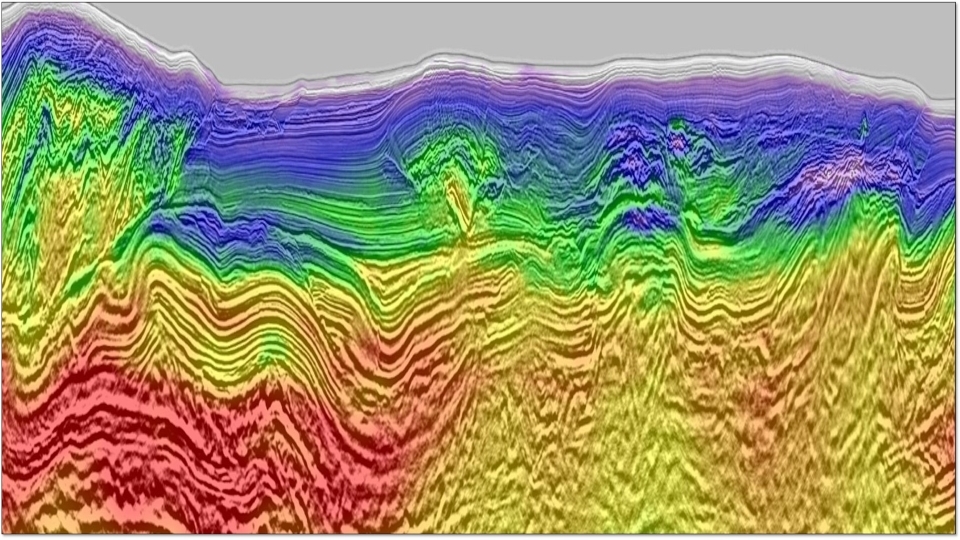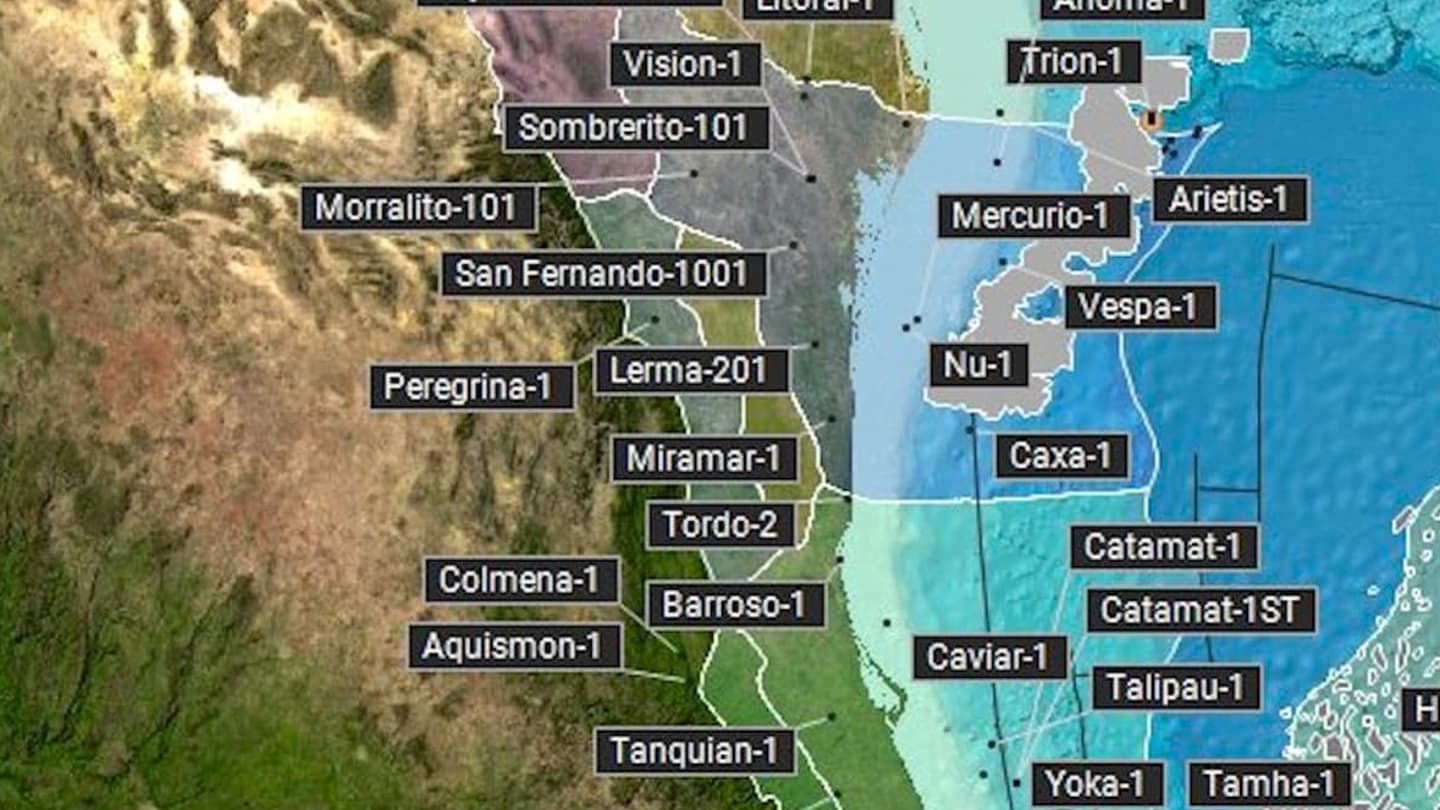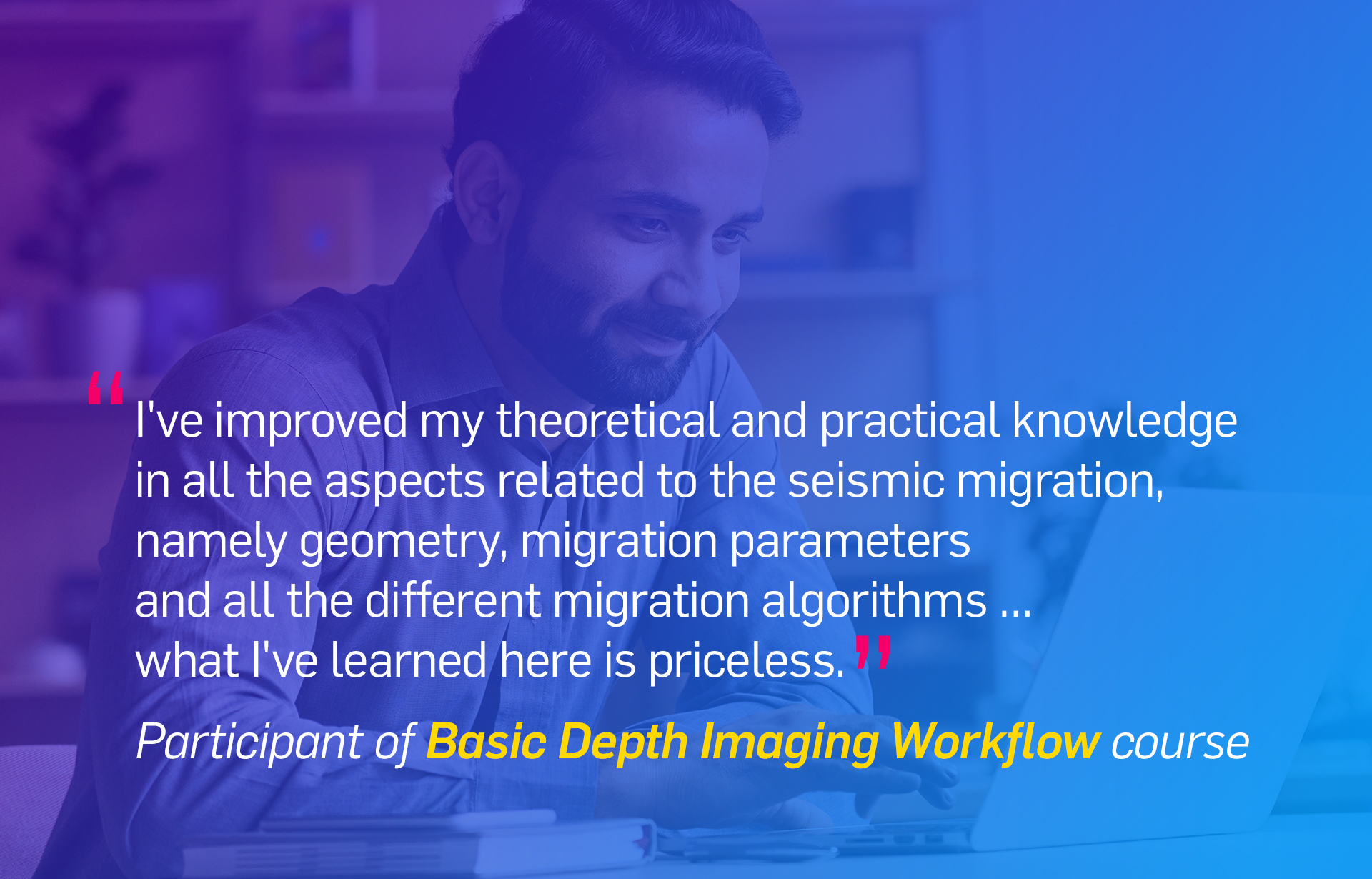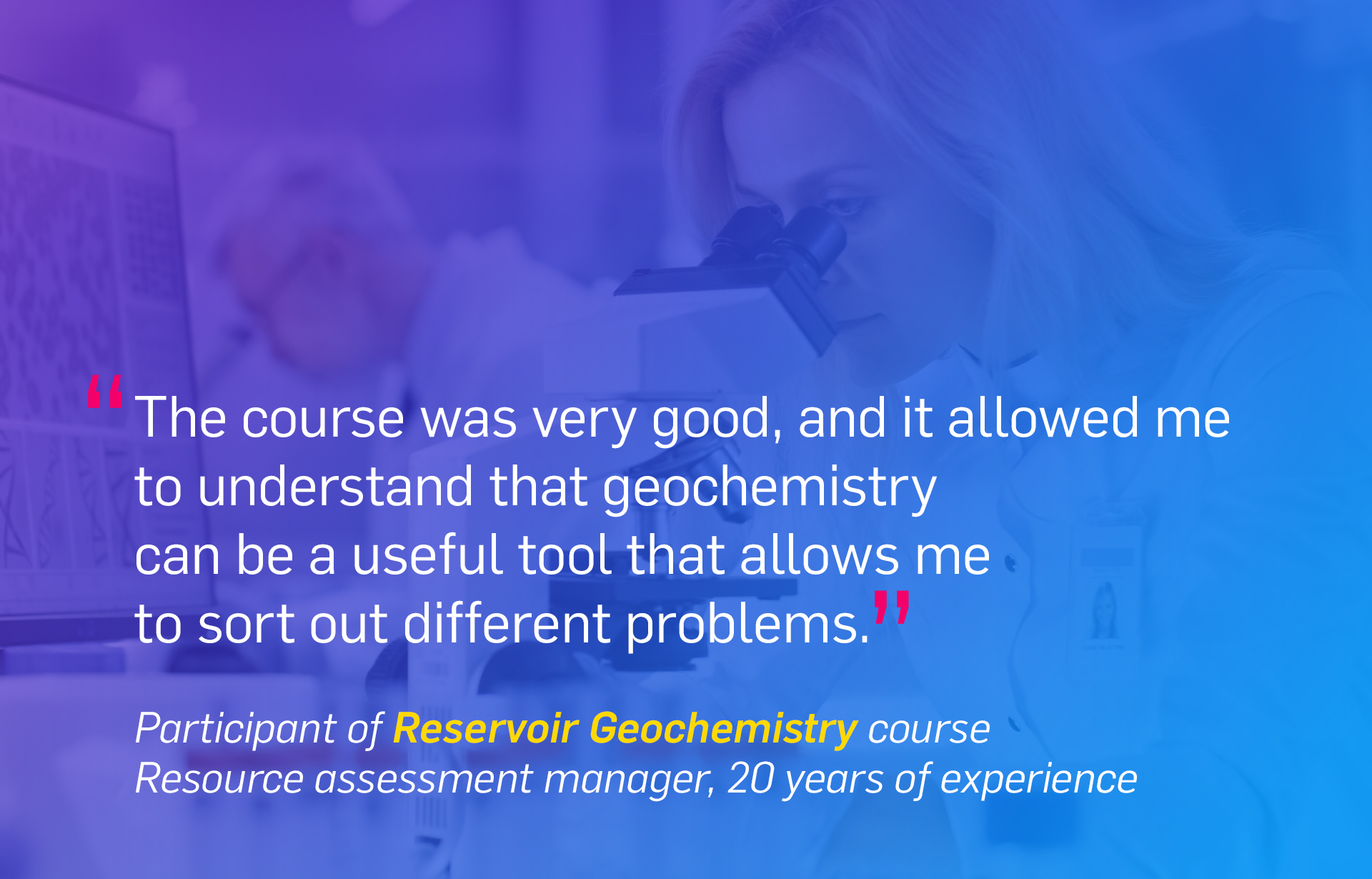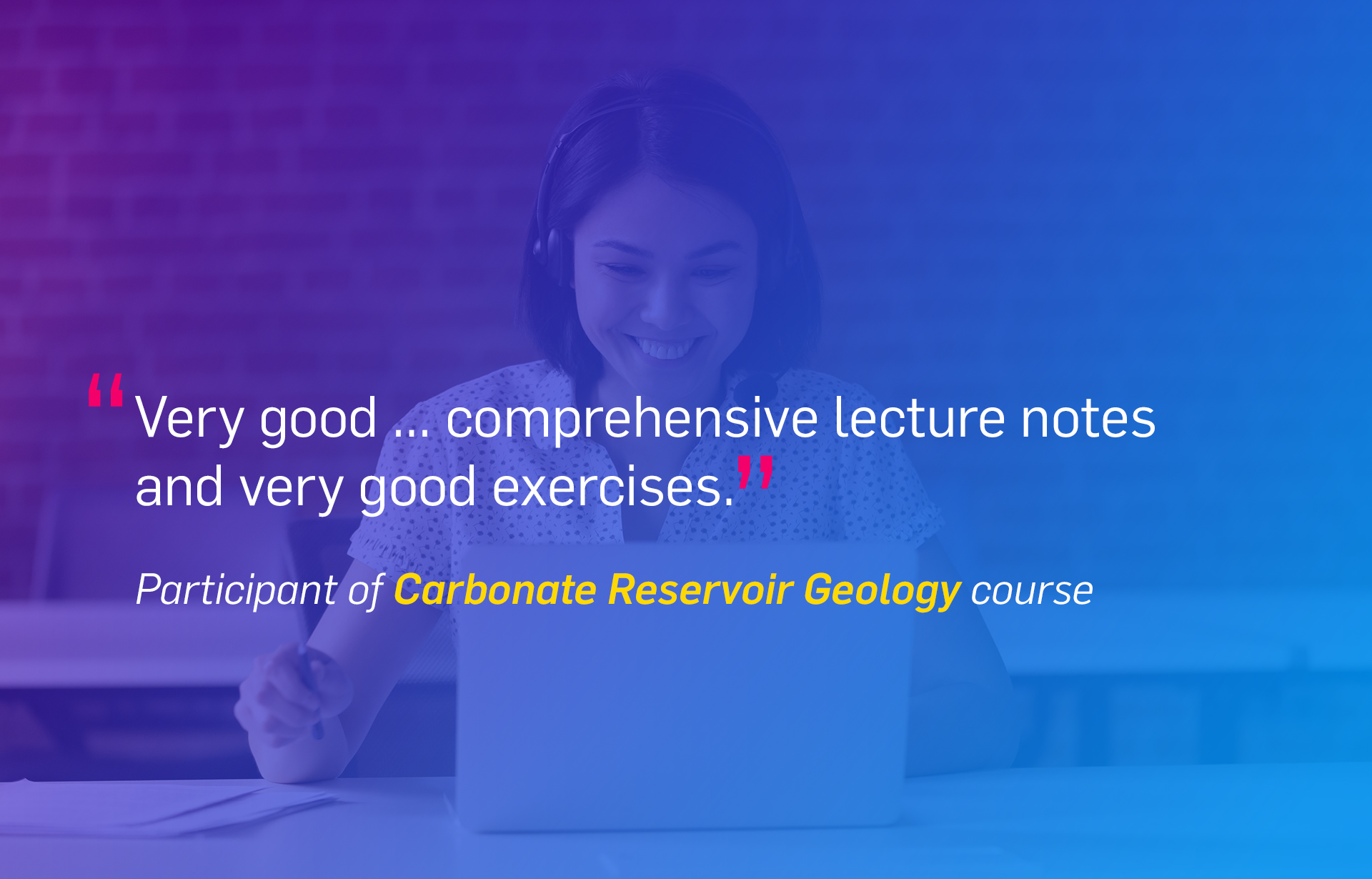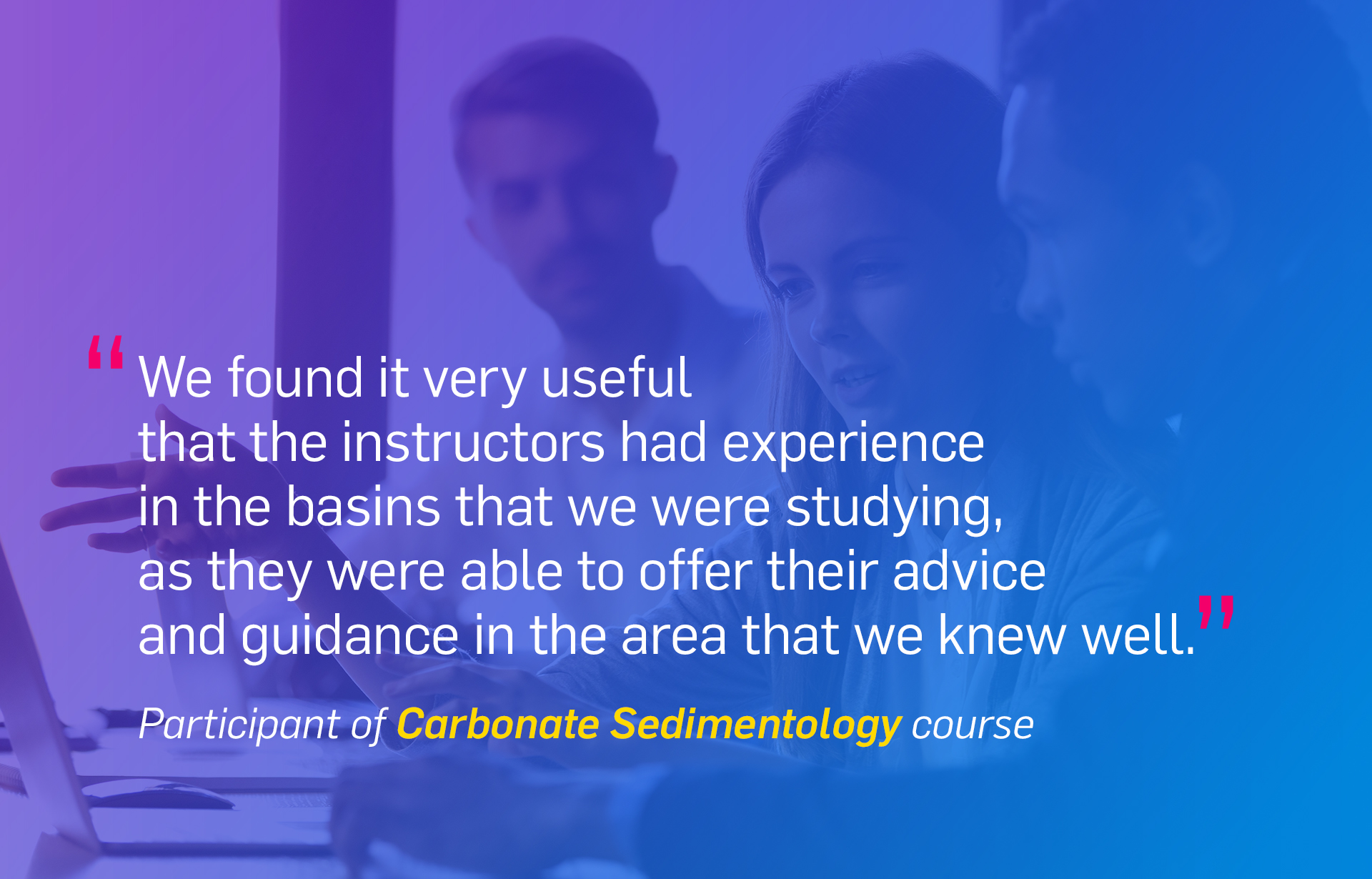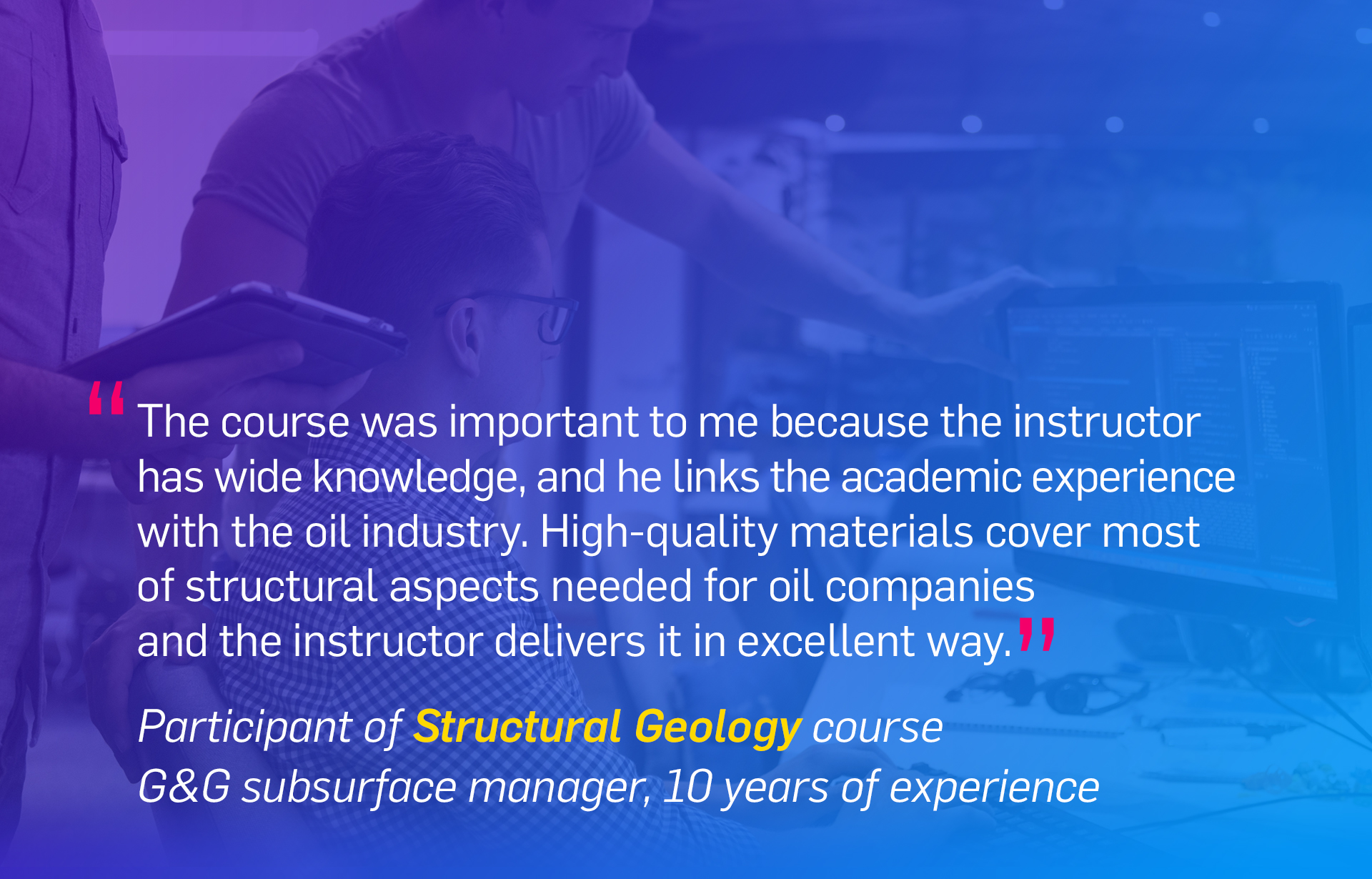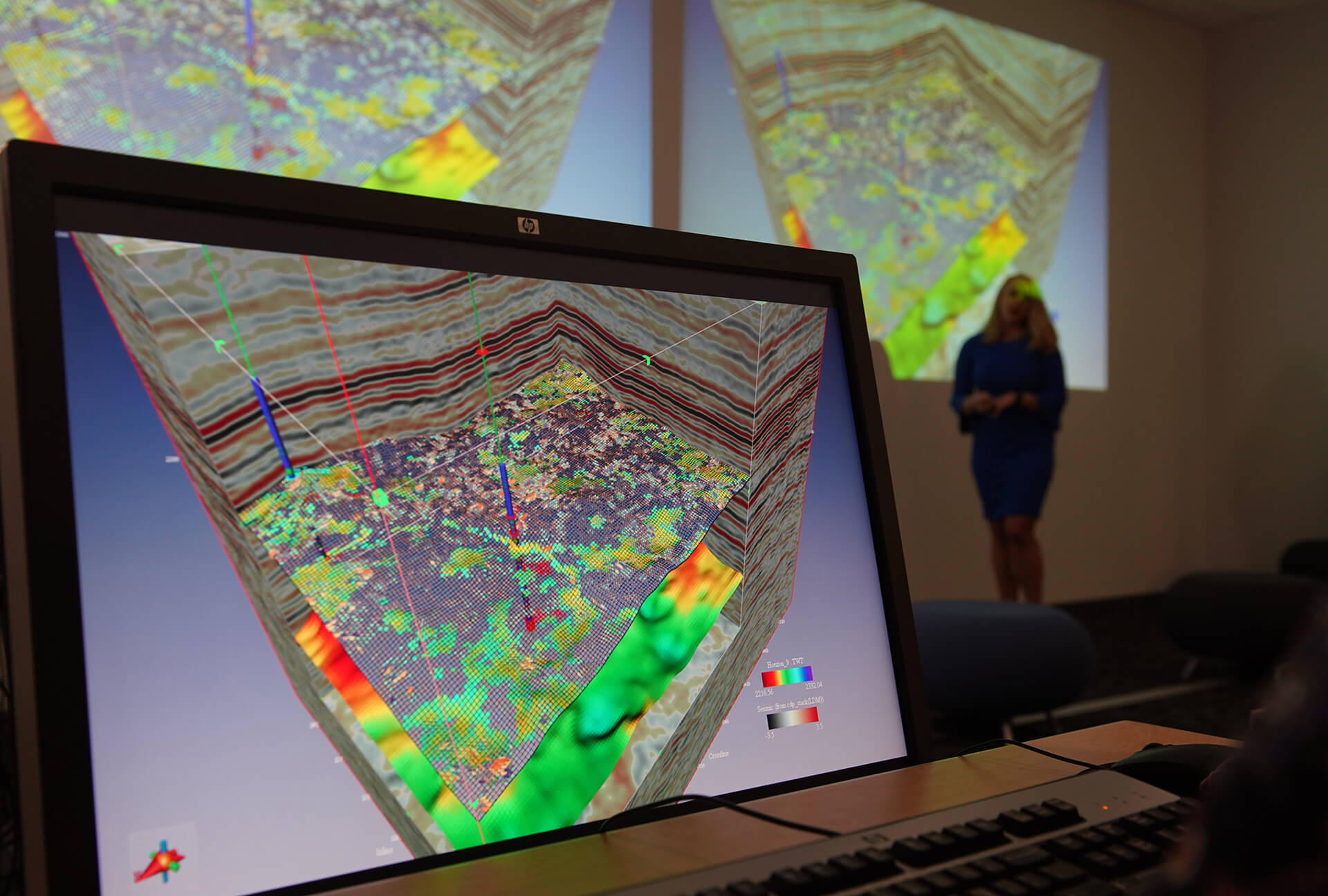Explore Our Short Specialist Courses
CGG GeoTraining offers shorter, more specific training opportunities. Each short specialist course can be tailored to your requirements.
Get an in-depth look at both the acquisition and processing sides of ocean bottom seismic. Delve deep into the specific acquisition equipment, techniques and technology. Review the influence of spatial sampling and illumination in an OBS context. Explore the processing of multi-component data through both up- and down-going wave fields and be introduced to the benefits brought by shear waves.
Extend knowledge to the integration of advanced seismic data sets into the seismic reservoir characterization workflow. Review higher-level inversion techniques and explain when and why they might be applied. Learn about application of seismic inversion for thin reservoirs, carbonates or unconventional reservoirs.
Explore in detail the more advanced algorithms for velocity model building and pre-stack depth imaging. Review anisotropy estimation in the context of both tomography and full waveform inversion. Study the principles and differences in migration algorithms through Kirchhoff, beam and wave equation methodologies including reverse time migration. Discuss the role of absorption and the Q factor in model building and imaging.
Undertake a detailed structural evaluation of a geological data set. Get to understand its relevance to each part of the exploration and production life cycle. Obtain working knowledge of structural geology, the geometry of the major structures, and the techniques used to evaluate them within the petroleum industry.
Get to evaluate and integrate biostratigraphic data. Become familiar with the range of biostratigraphic analyses available. Understand the application of high-resolution data and techniques including biosteering. Apply techniques to determine the timing of structures and interpret paleo-environments.
Obtain integrated knowledge with an approach to reservoir volumes, stress magnitudes and rock physics properties. Be able to QC input data and gain confidence. Understand the main steps of the workflow and be able to perform the analysis, and learn how to interpret these in terms of well engineering and reservoir characterization with other disciplines.
Identify the factors influencing petroleum systems and their evolution through time. Understand the sedimentary basins containing oil and gas accumulation. Reconstruct the complex burial and temperature history of sedimentary entities through time. Calculate source rock maturation and subsequent hydrocarbon expulsion and migration.
Understand deepwater depositional systems and how they form. Identify the geological controls on reservoir quality and architecture. Compare key depositional settings and models. Review and compare ancient and modern analogues. Evaluate the risks and uncertainties in deepwater exploration.
Learn how to apply reservoir fluid geochemistry to aid understanding of proven fields to enhance knowledge of reservoir continuity, compartmentalization and connectivity. Learn about reservoir fluid properties and their characteristics. Analyze, interpret and evaluate reservoir fluid data.
Analyze changes in seismic data over time to monitor change in a reservoir. Learn specific 4D processing techniques and evaluate the suitability of the acquisition and processing for 4D monitoring. Review the common 4D effects, how to measure these from seismic data, and relate them to the underlying rock physics.
Get an introduction to basic theory and techniques for non-seismic methods which include gravity, magnetics, magnetotellurics (MT) and various controlled source EM (AEM, CSEM). Learn how to best select a survey technique for your exploration questions, to optimize survey design and QC, and to understand key points in the processing and interpretation. Study the integration of these datasets with seismic and geology to obtain a better understanding of the exploration setting.
